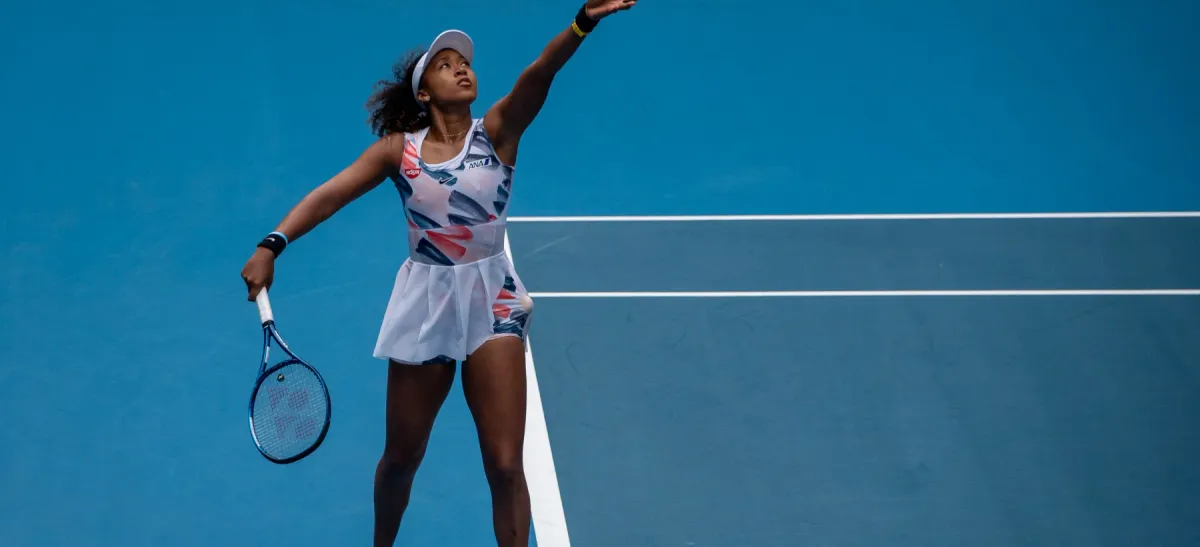Black Women Are Not Just Here For Your Entertainment - They’re Allowed to Protect Their Mental Health
Simone Biles, Naomi Osaka and Megan Markle are extraordinarily gifted in their own fields but also in their bravery to speak out about their mental wellbeing.

Access the Audio Read version of this article directly on Spotify for Podcasters.
"For many, Black people are a source of entertainment. And when they cease to serve that purpose, for whatever reason - be it a mistake or mental health issues - they’re not just met with critique or hostility, they’re also met with racism."
Simone Biles’ recent withdrawals from many of the gymnastic events she was tipped to win have sparked a global conversation about mental health. Biles was effectively the headline event for the whole competition, and her decision to withdraw sent shockwaves across the world. There was an outpouring of support from the public and many fellow sporting stars, as likely the greatest gymnast of all time spoke candidly about her struggles. However, it wasn’t all a positive reaction.
There were those, such as former Good Morning Britain host Piers Morgan, that did not see this as a moment to extend solidarity and trigger an international conversation about mental health. Instead, they laid into Biles, accusing her of failing her country, being self-centred, or shrinking her responsibility. Of course, Biles isn’t the first Black woman to receive this treatment in the press.
Meghan Markle, who shared in that dramatic interview with Oprah that she had contemplated suicide while pregnant, received widespread erasure, abuse, and ridicule from the British press. While there were those who supported her, in the UK, at least much of the response was utterly toxic. When tennis champion Naomi Osaka pulled out of Wimbledon and the French Open to protect her mental health, she was also subjected to condemnation, abuse, and erasure.
The response to these events is concerning, and even more so when you look at the statistics on Black women’s mental health. When it comes to mental health in the UK, 20.9% of white women suffer from “common mental disorders”, versus 29.3% of Black women. However, white women are more likely to have access to mental health support, with 14.5% of white women receiving support versus 6.5% of Black women. Stark statistics like these demonstrate how important it is to listen to Black women in the public eye when they speak out about the difficulties they are facing in their lives.
To be so unapologetic in their actions, to be so brave to speak out - knowing the response they would get - is inspirational. Because it’s not easy to do, especially when it involves potentially disappointing members of the public. For many, Black people are a source of entertainment. And when they cease to serve that purpose, for whatever reason - be it a mistake or mental health issues - they’re not just met with critique or hostility, they’re also met with racism. Indeed, the response to Marcus Rashford, Jadon Sancho, and Bukayo Saka missing penalties at the Euros this year demonstrated that when Black people don’t behave a certain way, they’re open to racist abuse and harassment.
Biles, Markle, and Osaka publicly choosing to preserve their mental health is monumental. They have demonstrated that you can be powerful, talented, and strong while also having vulnerabilities. Biles is probably the best gymnast in the history of the sport, as well as one of the best Olympians in history. And there she is, showing that you can be the G.O.A.T (greatest of all time) and still face mental health struggles. She’s also spoken out about her ADHD and medication for it, an incredibly stigmatised condition and treatment, as well her experience of sexual assault.
Markle is an enormously talented actress, who had a public profile long before marrying Prince Harry, and yet she also can face mental anguish. She spoke out despite knowing the backlash she would receive - particularly from the British tabloids, which hounded her during her time in the UK before she escaped to the US.
And Osaka, one of the brightest rising stars in tennis today - boldly taking a step back from the international stage to put herself and her well-being first. These women are not only extraordinarily gifted in their own fields, they’re also extraordinarily gifted in their courage and bravery to speak out.





